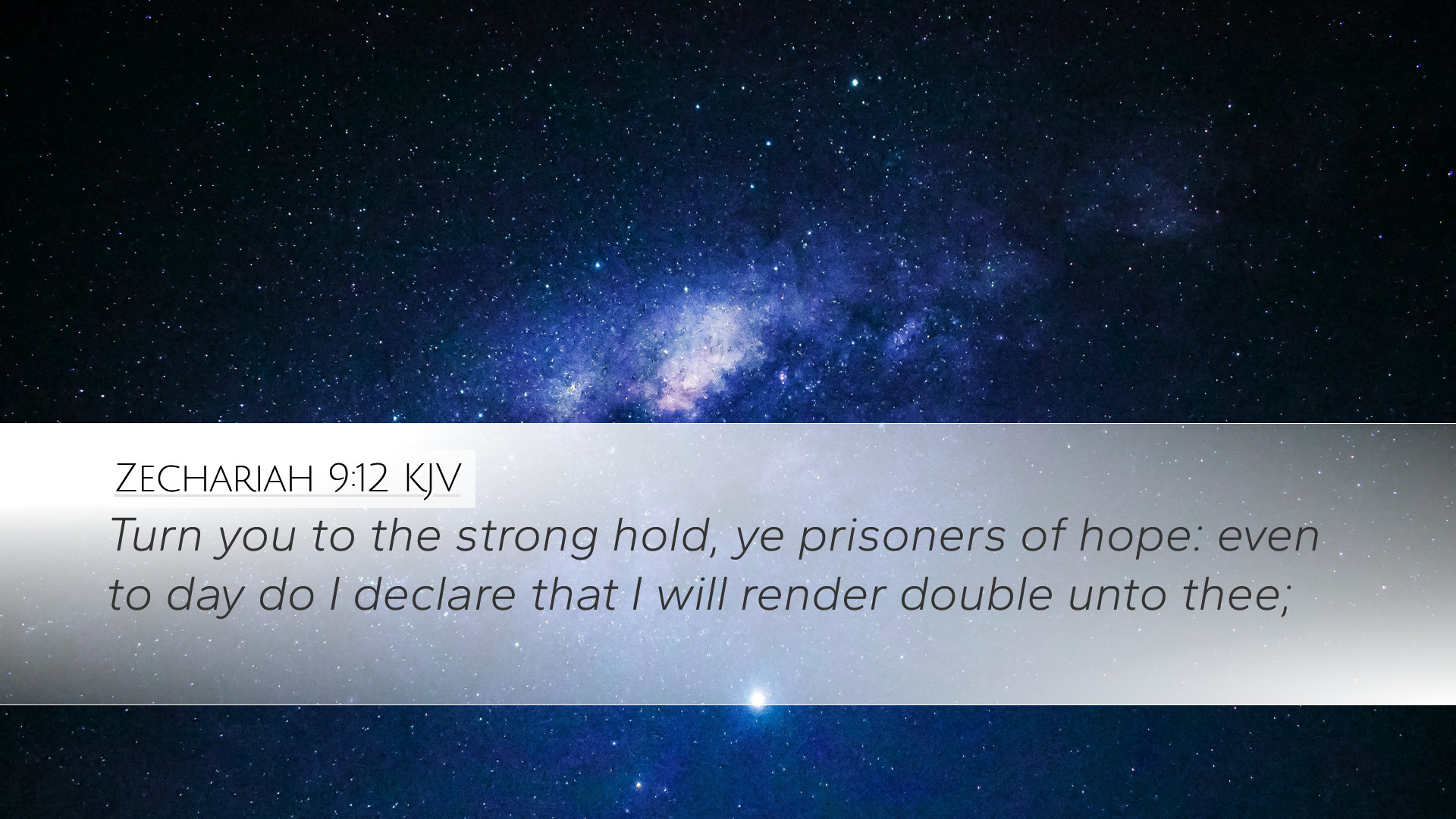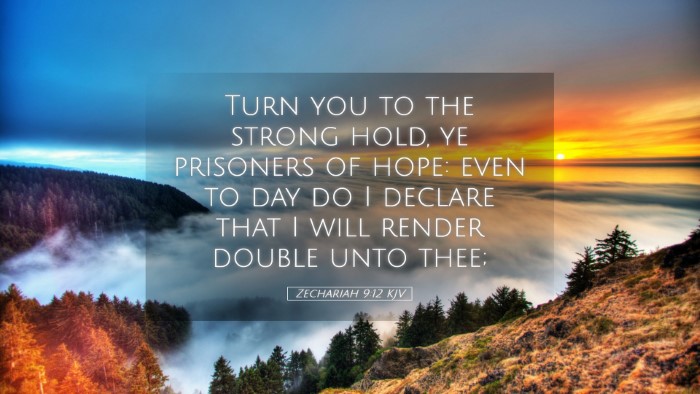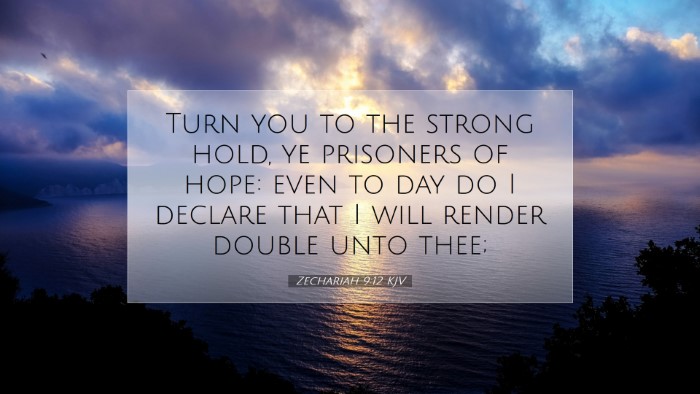Old Testament
Genesis Exodus Leviticus Numbers Deuteronomy Joshua Judges Ruth 1 Samuel 2 Samuel 1 Kings 2 Kings 1 Chronicles 2 Chronicles Ezra Nehemiah Esther Job Psalms Proverbs Ecclesiastes Song of Solomon Isaiah Jeremiah Lamentations Ezekiel Daniel Hosea Joel Amos Obadiah Jonah Micah Nahum Habakkuk Zephaniah Haggai Zechariah MalachiZechariah 9:12
Zechariah 9:12 KJV
Turn you to the strong hold, ye prisoners of hope: even to day do I declare that I will render double unto thee;
Zechariah 9:12 Bible Commentary
Bible Commentary on Zechariah 9:12
Verse Reference: Zechariah 9:12
"Return to the stronghold, ye prisoners of hope: even to-day do I declare that I will render double unto thee."
Introduction
This verse from Zechariah encapsulates a central theme of restoration and hope found throughout scripture. It speaks directly to the captives of Israel, presenting a message filled with God’s promises of redemption. The public domain commentaries provide valuable insights that reveal the depth of meaning in this prophetic pronouncement.
Commentary Overview
-
Matthew Henry's Commentary:
Henry emphasizes the call to "return to the stronghold," highlighting God's invitation to those who feel trapped by their circumstances. The "stronghold" is interpreted as a symbol of refuge and safety, where the faithful can find strength and security amidst trials.
-
Albert Barnes' Notes:
Barnes observes that those "prisoners of hope" are not merely captives but individuals who possess a future expectation of better days. He comments on the doubling of blessings that God promises, suggesting it reflects God’s abundance and the restoration that follows repentance and faith.
-
Adam Clarke's Commentary:
Clarke elucidates the term "prisoners of hope" as a paradox that captures both the plight and the expectation of God’s people. Clarke elaborates on the significance of God declaring to "render double," which he interprets as an assurance that God’s blessings far exceed the losses experienced during their captivity.
Thematic Insights
- 1. The Call to Return:
This prophetic call serves as an invitation to reconnect with God. It reflects the idea of repentance and the importance of turning back to God for restoration. It emphasizes that even in dire circumstances, there is a path back to spiritual security.
- 2. Captivity and Hope:
Being termed "prisoners of hope" is significant; it indicates that hope itself can be a form of bondage. In the depths of despair, hope becomes a sustaining force that keeps individuals rooted in faith despite their circumstances.
- 3. Double Restoration:
God’s promise of "double" underlines the principle of divine compensation. The mention of rendering "double" speaks to the greater grace and abundance of God that surpasses the trials endured, echoing the theme of restoration found throughout the biblical narrative.
Practical Applications
- For Pastors:
This verse can serve as a powerful reminder during sermons that God is always calling us back to Him, regardless of our past. It invites a focus on hope and restoration, crucial messages for congregational encouragement.
- For Students:
The complexity of this verse provides valuable material for exegesis and theological reflection. Engaging with the commentaries allows students to explore themes of hope, repentance, and God’s restorative nature in the prophetic literature.
- For Theologians:
The theological implications of being "prisoners of hope" offer a rich area for exploration, particularly in understanding the nature of hope within the context of suffering, and how God’s promises shape the narrative of redemption.
Conclusion
Zechariah 9:12 represents a profound declaration of hope intended to uplift and restore those who feel captive by their circumstances. Reflecting on the insights from Matthew Henry, Albert Barnes, and Adam Clarke, we find a composite message that speaks to the overarching narrative of God's faithfulness and the promise of restoration. In our personal and communal journeys, may we heed the call to return to our "stronghold," embracing the profound hope that God extends to us, affirming the reality of His redemptive power that promises not merely restoration but abundance.


